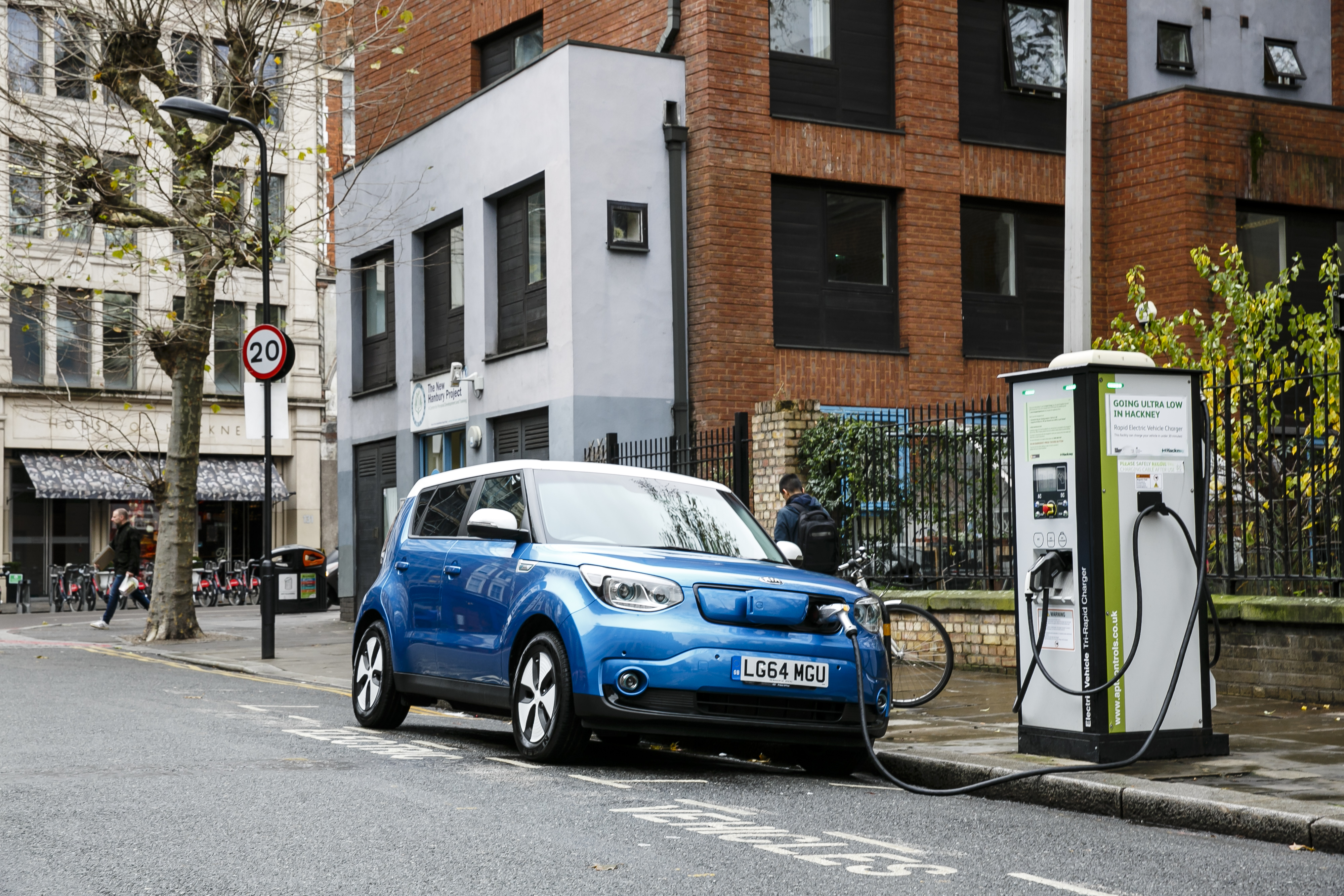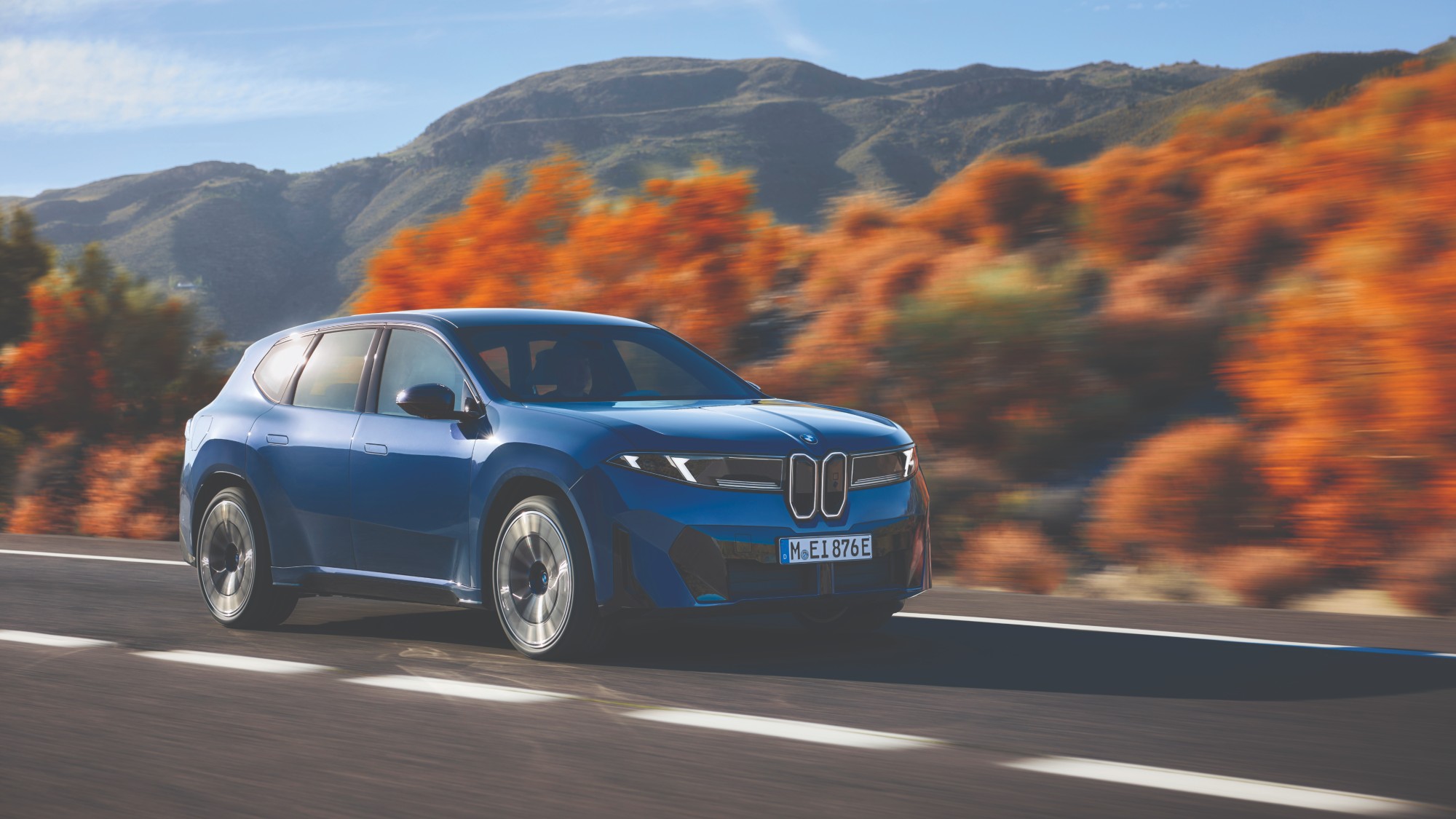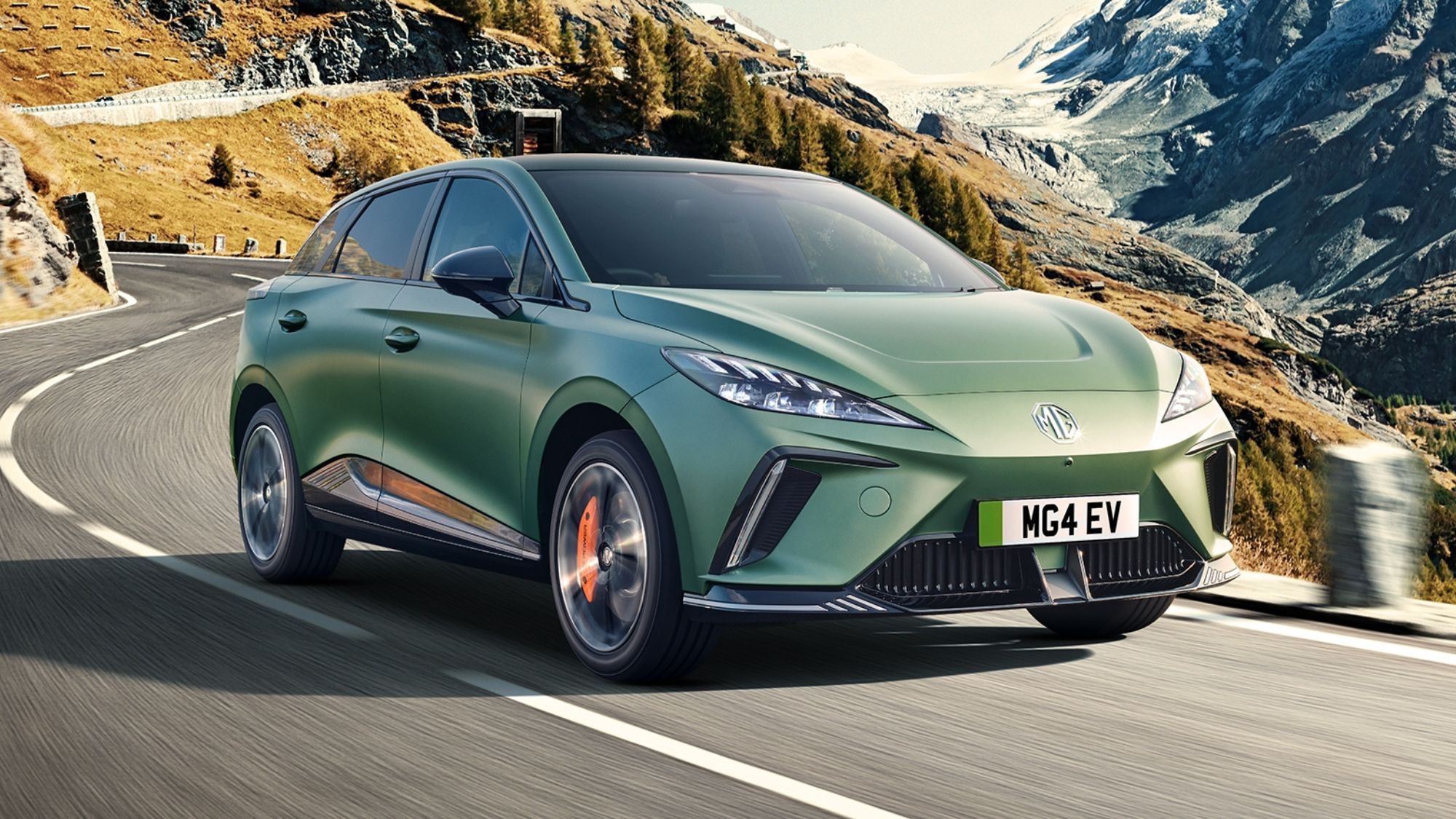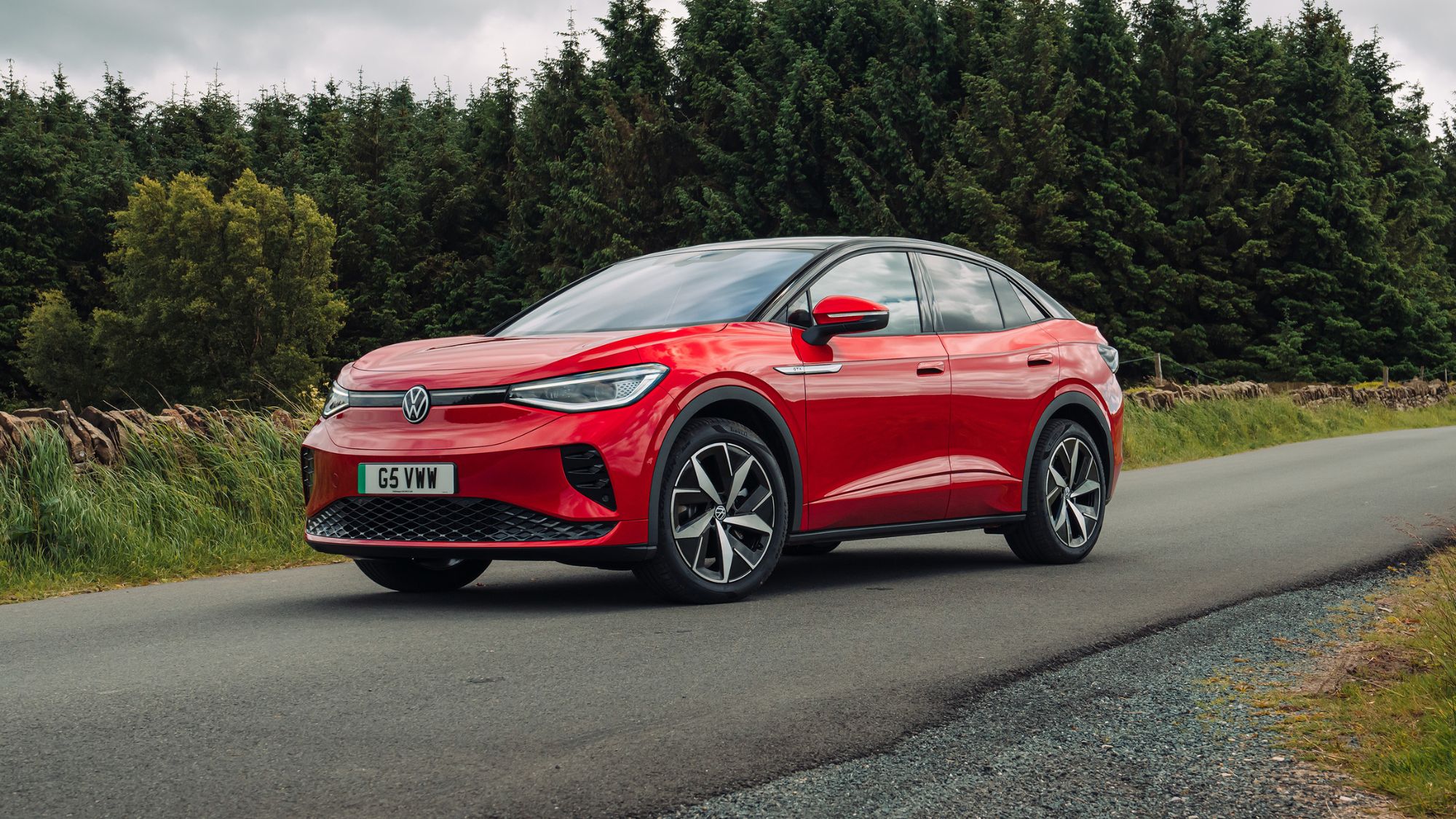Electric car charging in the UK: prices and payment plans, plus charger types and where to find them
Government doubles EV charger fund to keep up with the fastest growing area of the car market

A free daily email with the biggest news stories of the day – and the best features from TheWeek.com
You are now subscribed
Your newsletter sign-up was successful
Electric cars are becomingly an increasingly familiar sight on British roads as car manufacturers continue to encourage buyers to make the switch over to more environmentally friendly vehicles.
The latest figures from the Society of Motor Manufacturers and Traders (SMMT) reveal that electric car sales are at an all-time high in the UK, with 2,271 of the 157,198 vehicles sold in July being battery electric models.
That represents a 158.1% increase on the 880 EVs sold during the same period last year and record monthly market share for the segment, Auto Express reports.
The Week
Escape your echo chamber. Get the facts behind the news, plus analysis from multiple perspectives.

Sign up for The Week's Free Newsletters
From our morning news briefing to a weekly Good News Newsletter, get the best of The Week delivered directly to your inbox.
From our morning news briefing to a weekly Good News Newsletter, get the best of The Week delivered directly to your inbox.
To keep up with demand, the Government has announced that it will double funding for on-street electric car chargers, The Independent says. The extra £2.5m will result in more than 1,000 additional public chargers being installed on residential roads, in a bid to make EV ownership more attractive to car buyers.
It could prove to be a vital step, too, given that one of the main reasons that turns many motorists away from electric car ownership is range anxiety – the fear of running out of power because an EV charger can’t be found in time, the BBC says.
But with the UK’s charger network growing by the day, along with advances in EV batteries, range anxiety could soon be a thing of the past.
Here’s our guide to electric car chargers in Britain:
A free daily email with the biggest news stories of the day – and the best features from TheWeek.com
How much does it cost to charge an EV?
It depends on the car you’re driving and the charger you’re using.
Around 90% of electric car owners in the UK charge their vehicles at home using either a generic three-pin socket or a dedicated charging point, says the EV news site DrivingElectric. The average cost of filling up a Nissan Leaf using a three-pin charger at home is £5.76, but a number of drivers top up their car at night when rates are lower.
Public charging stations are a little more complicated. The largest charging provider in the UK is Polar, which offers a subscription service to use its network, the motoring site says. The Polar Plus scheme costs about £7.85 a month. New members get the first three months of their plan for free.
Next is Polar Instant, a pay-as-you-go system that allows drivers to use its chargers at a rate of £6 for 30 minutes, says WhatCar.
Tesla’s Supercharger network, meanwhile, costs £0.24 per kWh to use. This means that if your Tesla Model 3 has a battery capacity of 75kWh, a full charge would cost around £18.
It’s worth bearing in mind that some providers charge an admin fee of up to £3.50 per use.
What are the different types of public chargers?
In the UK, the most common are fast chargers.
Typically found at a workplace or public location, these offer four types of power outputs: 3.6kW, 7kW, 11kW or 22kW, says WhatCar?. A full charge takes between one and six hours, depending on the output your EV is compatible with.
Next are AC and DC rapid chargers that provide 43kW and 20kW-50kW outputs respectively, says the car reviews site. Across the UK, 150kW and 175kW chargers are also being installed. These can fully charge newer electric cars in about 45 minutes.
Tesla has its own charging network called “Superchargers”. The V2 version of the charger is currently available in Britain and provides a capped output of 120kW, says The Verge. Later this year, the V3 version will arrive in Europe, bringing with it a charging rate of 250kW.
The most powerful chargers come from the charging company Tritium and Ionity, a joint venture between BMW, Ford, Volkswagen and Mercedes-Benz’s parent firm Daimler.
Tritium and Ionity have joined forces to launch a network of 350kW chargers across 120 different sites in Europe, says Auto Express. These are capable of providing compatible EVs with 220 miles of range in just ten minutes, making them significantly faster than rapid chargers.
The first chargers will appear in the UK later this year. Some 44 sites will support the high-power chargers. The M20 near Maidstone will get the chargers first.
How to find a charger near you
According to WhatCar?, there are currently 17,000 chargers across Britain and that number is “growing all the time”. As of this year, it has become a legal requirement for large petrol stations and motorway services to provide some form of electric charging facility.
Finding a charger isn’t always easy, however, as the number of petrol stations is still dramatically higher than the number of EV charging points, says Car magazine.
The simplest way to find a public charger for your EV is to use Zap-Map, an online tool that shows the nearest charging point after drivers have typed in their postcode, the motoring magazine says.
Some EV carmakers highlight the nearest charging station through the vehicle’s sat nav system. Tesla, for instance, will even plan routes so that drivers can stop off at one its Superchargers on the way.
-
 The week’s best photos
The week’s best photosIn Pictures An explosive meal, a carnival of joy, and more
-
 The ‘ravenous’ demand for Cornish minerals
The ‘ravenous’ demand for Cornish mineralsUnder the Radar Growing need for critical minerals to power tech has intensified ‘appetite’ for lithium, which could be a ‘huge boon’ for local economy
-
 Why are election experts taking Trump’s midterm threats seriously?
Why are election experts taking Trump’s midterm threats seriously?IN THE SPOTLIGHT As the president muses about polling place deployments and a centralized electoral system aimed at one-party control, lawmakers are taking this administration at its word
-
 BMW iX3: a ‘revolution’ for the German car brand
BMW iX3: a ‘revolution’ for the German car brandThe Week Recommends The electric SUV promises a ‘great balance between ride comfort and driving fun’
-
 The best new cars for 2026
The best new cars for 2026The Week Recommends From SUVs to swish electrics, see what this year has to offer on the roads
-
 Honda and Nissan in merger talks
Honda and Nissan in merger talksSpeed Read The companies are currently Japan's second and third-biggest automakers, respectively
-
 Are plug-in hybrids better for America's climate goals?
Are plug-in hybrids better for America's climate goals?Talking Points The car industry considers a 'slower, but more plausible path' to reducing emissions
-
 EV market slowdown: a bump in the road for Tesla?
EV market slowdown: a bump in the road for Tesla?Talking Points The electric vehicle market has stalled – with worrying consequences for carmakers
-
 The week's good news: Dec. 14, 2023
The week's good news: Dec. 14, 2023Feature It wasn't all bad!
-
 MG4 EV XPower review: what the car critics say
MG4 EV XPower review: what the car critics sayFeature The XPower just 'isn't as much fun' as a regular MG4
-
 Volkswagen ID.5 review: what the car critics say
Volkswagen ID.5 review: what the car critics sayFeature The ID.4's 'sportier, more stylish twin' – but 'don't believe the hype'